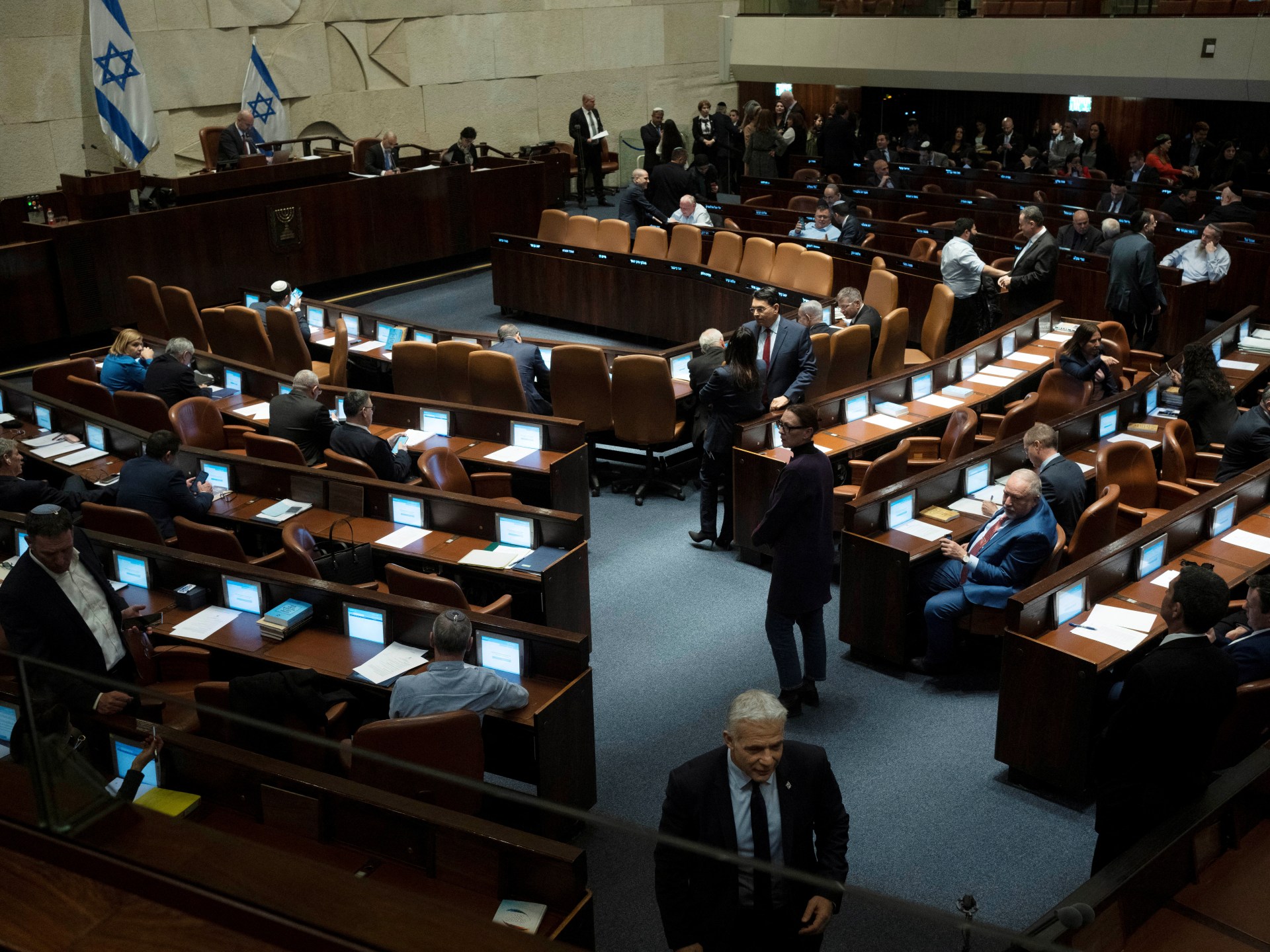The Israeli Knesset approved, at dawn today, Tuesday, in its first reading, one of the most important laws that overthrow the judicial system in Israel, which allows the legislative authority (the Knesset) to overcome the decisions of the Supreme Court.
The bill, which was approved in the first reading, stresses the conditions that allow the Supreme Court to invalidate an ordinary law, and also allows Parliament to protect the law from any repeal, through a legislative process that requires a simple majority (61 deputies out of 120) in the so-called exception clause that allows avoiding the control of the Supreme Court.
After hours of heated debate, 61 out of 120 deputies voted in favor of the proposed bill and 51 against it in the first reading.
The rest were absent or abstained from voting.
Two more Knesset readings are needed before the controversial bill goes into effect.
And Parliament had adopted, in its first reading, another draft law that greatly reduces the possibility of declaring the prime minister unable to perform his job.
Prior to that, the Israeli Knesset adopted, in its first reading, another draft law that greatly reduces the possibility of announcing that the prime minister is unable to perform his job.
The legal amendment was approved by a majority of 61 votes, and the amendment prohibits the removal of the prime minister from office except for psychological or medical reasons, provided that this is achieved by a majority of 90 members of the Knesset out of 120.
The ruling coalition worked to introduce this amendment in order to prevent the legal advisor to the government from forcing Benjamin Netanyahu to step down from office due to the corruption cases he is pursuing.
Opposition leader Yair Lapid said that Netanyahu should step down because he is unable to carry out his duties, and because he has lost control of his government, and his ministers do not value him and the state may disintegrate around him, according to Lapid's expression.
Herzog: Israel is in a very bad situation
Israeli President Isaac Herzog had said that Israel is going through a very dangerous situation that may have repercussions on the country's politics, economy, society and security.
Regarding the continued protests against the government's efforts to amend some laws related to the judiciary and reduce the powers of the Supreme Court, the Israeli president said that he is making strenuous efforts to reach a settlement formula acceptable to the coalition and the opposition in order to save Israel and fortify its foundation for generations to come.
"We are in a bad situation, very bad," he added.
He described the situation as "an internal struggle that is tearing us apart."
He said that he was making every effort to reach an agreement to save Israel from the crisis, noting that he was meeting with everyone and listening to them, adding that he was trying to find a solution that "would establish the principles of the State of Israel for many generations to come."
For her part, the former Chief Justice of the Supreme Court, Dorit Bench, said that the legislation that is enacted weakens the judiciary and its protectors and plunges the state into a crisis it has never experienced before.
Mass demonstrations
The amendments that the Netanyahu government is trying to pass have sparked mass demonstrations against the judicial changes over the past 10 weeks, and attempts to reach a settlement have failed.
Attorney General Gali Baharav Mayara warned that this change could lead to "ridiculous situations" and said it creates a "black hole" as it prevents any legal oversight.
Critics believe that judicial reform endangers the separation of powers and warns that Israel may turn into a dictatorship, and that the bill could also benefit Netanyahu in the corruption trial that has been taking place against him for some time.

